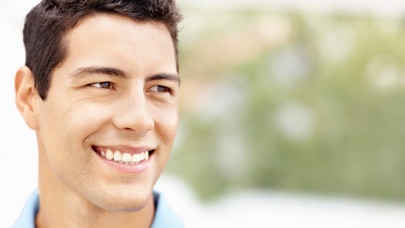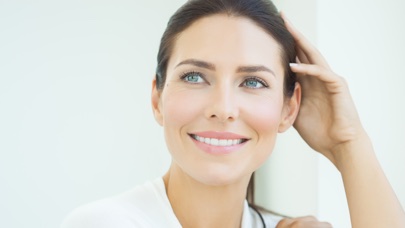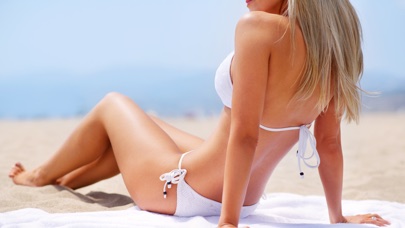




While we’d all like to believe in only the positive effects of the occasional glass of wine, it’s clear that alcohol isn’t always our friend. In fact, experts suggest that the negative effects of alcohol, especially when consumed excessively, far outweigh the positives, rendering that little boost in antioxidants, for instance, wholly ineffective. While the list of alcohol’s effects may be endless and are still being studied, here we’re covering off what all those refreshing summer cocktails or warming winter mixtures could do to your skin and how you can help your skin recover from the damage.
At the very basic level, alcohol has zero nutritional value. We know it can definitely taste delicious and sure, we can enjoy consuming our bevvies, but it’s important to get real about its effects on the body, too. Alcohol can impair liver function, challenge your immune system, disrupt hormone levels, damage cells, and more, all while having a negative impact on the texture, tone, and overall health of your skin. All of this can be experienced just 24 hours after drinking, but that’s just the beginning...
Alcohol is a diuretic, meaning it makes you have to urinate much more often. Each time you do, vitamins and nutrients are flushed out of the body and your hydration levels lower, which certainly shows in the body’s largest organ—your skin. Any water consumed alongside alcohol won’t balance things out, as it simply continues to flush out of the body until the liver is able to completely eliminate the alcohol approximately three days later, meaning the potential for exaggerated fine lines and wrinkles and a rougher skin texture. Additionally, the damage to skin’s hydration lowers its defenses against other damaging factors like UV exposure, free radicals, and pollution.
It should be noted that oftentimes the alcohol isn’t the only element in these drinks that’s drying out skin and emphasizing fine lines and wrinkles—high sugar levels are to blame as well. High levels of sugar in mixed cocktails, wine, and beer alike stimulates what’s called the glycation of skin cells. Essentially, sugar molecules attack fats and proteins, latching on and forming advanced glycation end products (AGEs), which are harmful compounds that cause proteins to stiffen and augment. Collagen and elastin are the two proteins in skin most affected by the process. The effects of all this sugar show up as duller, looser, more wrinkled skin and free radicals produced out of the process wreaks further havoc. In other words, the sugar in alcoholic beverages is like your skin’s kryptonite.
Chronic alcohol consumption can cause inflammation, and chronic inflammation can lead to a host of health concerns, your skin health being just one of the factors at risk. Chronic inflammation can lead to acne breakouts as well as redness and broken blood vessels, uneven skin tone, and, in time, rosacea, a chronic inflammatory skin condition. Mild rosacea flare-ups appear as mild redness and flushing extending to thicker, swollen, bumpy skin over time and with greater intensity. Essentially, inflammation stalls skin from performing its normal cell renewal process, leading to duller, more tired, and older-looking skin.
The sugar content in alcohol can affect acne-prone skin, causing dehydration that clogs pores and increases dryness. Depending on how your night went, you may also be a little less invested in your skin care routine before hitting the sack, meaning blackheads, spots, and increased risk of wrinkled skin over time from skipping that important evening cleanse. All of this, alongside alcohol’s effects on hormone levels and gut flora, can set your skin’s natural balance out of whack, leading to blackheads and breakouts that may continue well after the final drink. This is particularly true when gut microflora have altered due to consistent and frequent alcohol consumption. As your system tries to get past this imbalance in gut bacteria, it shows in your complexion with increased acne breakouts on the cheeks, chin, and forehead.
Alcohol can certainly help us to fall asleep faster, but its effects on sleep quality aren’t so great. Alcohol consumption directly affects deep sleep. For most, alcohol means additional interruptions in sleep throughout the night and that’s even more true for females. According to one recent study, drinking before bed had a greater impact on sleep quality among females compared to males, with female participants not only experiencing fewer hours of sleep but also waking up much more frequently at night.
At night, skin initiates a deep clean while you sleep, working to reverse any damage caused by environmental elements, stress, and more encountered throughout the day. Further, while you sleep, restoration of the skin’s lipid barrier, which acts as a sort of shield to protect skin from external factors that can damage collagen and elastin stores in the lower layers of the skin, is initiated. To do so, the body produces higher levels of human growth hormones (HGH) to stimulate skin cell renewal for a smoother, healthier appearance by the morning. A lack of beauty sleep following alcohol consumption can leave skin unable to recuperate and restore its lipid barrier, giving it an immediately duller appearance the next morning and causing the development of further signs of premature aging over time, making it less possible for the skin to bounce back on its own.
Aside from cutting back on your alcohol intake, here are a few quick tips that can better help your skin recover from the damage done:
Adding serums and creams containing retinol can help to encourage a healthy skin cell renewal cycle, acting as a kickstart for aging or tired skin. Likewise, hyaluronic acid can help to capture and retain more moisture, supporting the restoration of skin’s lipid barrier for increased hydration and a smoother, plumper appearance.
This might be a simple one, but skipping alcohol for caffeinated or sugar-laden drinks isn’t the best option either. Instead, offset the alcoholic drinks by favoring water (fizzy water at most if you’re craving something bubbly) and consume more foods that help to rehydrate—this usually means more vegetables and less salt.
An increase in pimples is common when your gut works to get back to its pre-alcohol balance. Remember that your skin’s ability to bounce back from damage may be slower (also as a result of the alcohol), so it’s super important not to pop those pimples! Instead, consider a spot treatment to soothe inflammation or opt for acne treatments that utilize Intense Pulsed Light (IPL) to both reduce redness and inflammation while neutralizing acne-causing bacteria to prevent future breakouts.
For those experiencing rosacea symptoms, it’s best to get a head start on treatments. Be sure to check in with a dermatologist to find what skin care products work best for you. You may also want to consider treating your uneven skin texture concerns with non-surgical skin resurfacing treatments. Utilizing radio frequency-based technology, these treatments create tiny micro-dermal wounds, which prompts skin’s natural healing cycle for a smoother complexion without the hefty downtime. These treatments are also safe for all skin tones.
It might seem cynical, but there’s only so much magic topicals can do. For those who may have enjoyed one too many drinks for one too many years, a customized non-surgical wrinkle reduction treatment plan may be your best bet. Wrinkle reduction treatments work by enhancing your skin’s natural production of collagen and elastin—the two main building blocks of smoother, firmer skin—for a naturally healthier, younger-looking appearance with absolutely no downtime.
Finally, for those looking to reduce the appearance of broken blood vessels, vascular marks on the face, or other signs of sun damage that have cropped up as a result of skin’s weakened defenses against UV exposure, seek out a customized photofacial treatment plan. Using advanced IPL technology, these treatments effectively target pigment under the skin's surface to reduce the appearance of discoloration for a more even, youthful complexion in just a few quick treatments.
Ready to reverse the effects of alcohol on the skin and take your routine to the next level with a customized non-surgical aesthetics treatment plan? Discover the best option for your aesthetic goals by contacting a certified treatment provider today! Get started by using the search field below.
Find a certified Venus Treatments provider near you today who specializes in today’s top aesthetic medical solutions.



Search below to find a provider near you and to learn about our non-surgical aesthetic treatments with ARTAS®, NeoGraft®, Venus Bliss™, Venus Versa™, Venus Legacy™, Venus Velocity™, Venus Viva™ MD, Venus Freeze Plus™, and Venus Glow™.
For more information call: +61 416 022 096 // [email protected] // Suite 3.06/ Level 3 20 Rodbourgh Road, Frenchs Forest NSW 2086, Australia
REGULATORY CLEARANCES [ More ]
Venus Versa™ has CE Mark as a multi-application device intended to be used in aesthetic and cosmetic procedures. The SR515 and SR580 applicators have CE Mark for the treatment of benign pigmented epidermal and cutaneous lesions and treatment of benign cutaneous vascular lesions. The HR650/HR650XL and HR690/HR690XL applicators have CE Mark for the removal of unwanted hair and to effect stable long-term or permanent hair reduction for Fitzpatrick skin types I-IV. The AC Dual applicator has CE Mark for the treatment of acne vulgaris. The DiamondPolar™ applicator has CE Mark for non-invasive treatment of moderate to severe facial wrinkles and rhytides on females with Fitzpatrick skin types I-IV. The OctiPolar™ applicator on the Venus Versa™ system has CE Mark for temporary body contouring via skin tightening, circumferential reduction, and cellulite reduction. The NanoFractional RF™ (Viva) applicator has CE Mark for dermatological procedures requiring ablation and resurfacing of the skin.
NeoGraft® 2.0 has CE Mark and TGA with indication for use in suction-assisted follicular extraction and re-implantation for males and females.
The ARTAS iX™ from Restoration Robotics® is indicated for harvesting hair follicles from the scalp in men diagnosed with androgenic alopecia (male pattern hair loss) who have black or brown straight hair. The ARTAS iX™ from Restoration Robotics® is intended to assist physicians in identifying and extracting hair follicular units from the scalp during hair transplantation; creating recipient sites; and implanting harvested hair follicles.
Venus Epileve™ has CE Mark for hair removal, permanent hair reduction (defined as the long-term stable reduction in the number of hairs re-growing when measured at 6, 9 and 12 months after the completion of a treatment regimen), and the treatment of pseudofolliculitis barbae for all Fitzpatrick skin types. Venus Epileve™ is also CE-Marked for hirsutism.
Venus Legacy™ has CE Mark for the temporary increase of skin tightening, circumferential reduction, cellulite reduction, and wrinkle reduction.
Venus Velocity™ has CE Mark for hair removal, permanent hair reduction (defined as the long-term stable reduction in the number of hairs re-growing when measured at 6, 9 and 12 months after the completion of a treatment regimen), and the treatment of pseudofolliculitis barbae for all Fitzpatrick skin types.
Venus Viva™ has CE Mark for the use in dermatologic and general surgical procedures requiring ablation and resurfacing of the skin, and the treatment of moderate to severe facial wrinkles and rhytides in Fitzpatrick skin types I-IV with the DiamondPolar™ applicator.
Venus Freeze Plus™ has CE Mark for treatment of moderate to severe facial wrinkles and rhytides using the DiamondPolar™ applicator, and CE Mark for the treatment of cellulite reduction, increase of skin tightening, and temporary circumferential reduction on the OctiPolar™ applicator.
Venus Freeze™ has CE Mark for treatment of moderate to severe facial wrinkles and rhytides using the DiamondPolar™ applicator, and CE Mark for the treatment of cellulite reduction, increase of skin tightening, and temporary circumferential reduction on the OctiPolar™ applicator.
Venus Glow™ provides a dermal rejuvenation treatment that works to open up and deep-clean pores. Venus Concept is the exclusive distributor for Venus Glow™.
Copyright © 2025 Venus Concept. All rights reserved.
You are entering our website. For other country/regions and language options, please click the button below.
Click HereAre you a physician or aesthetician? Please visit our medical and aesthetic professional website to learn more.
Click Here